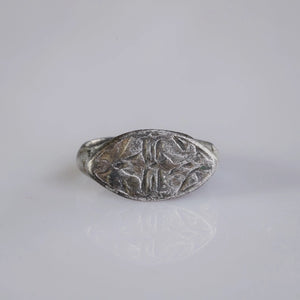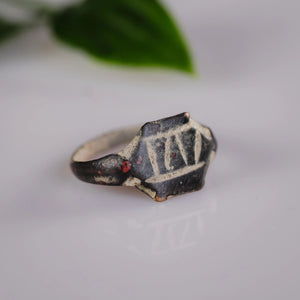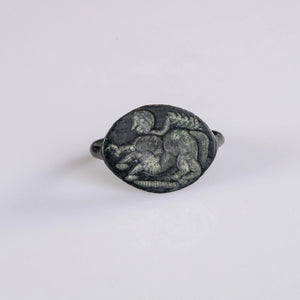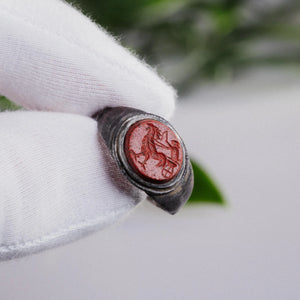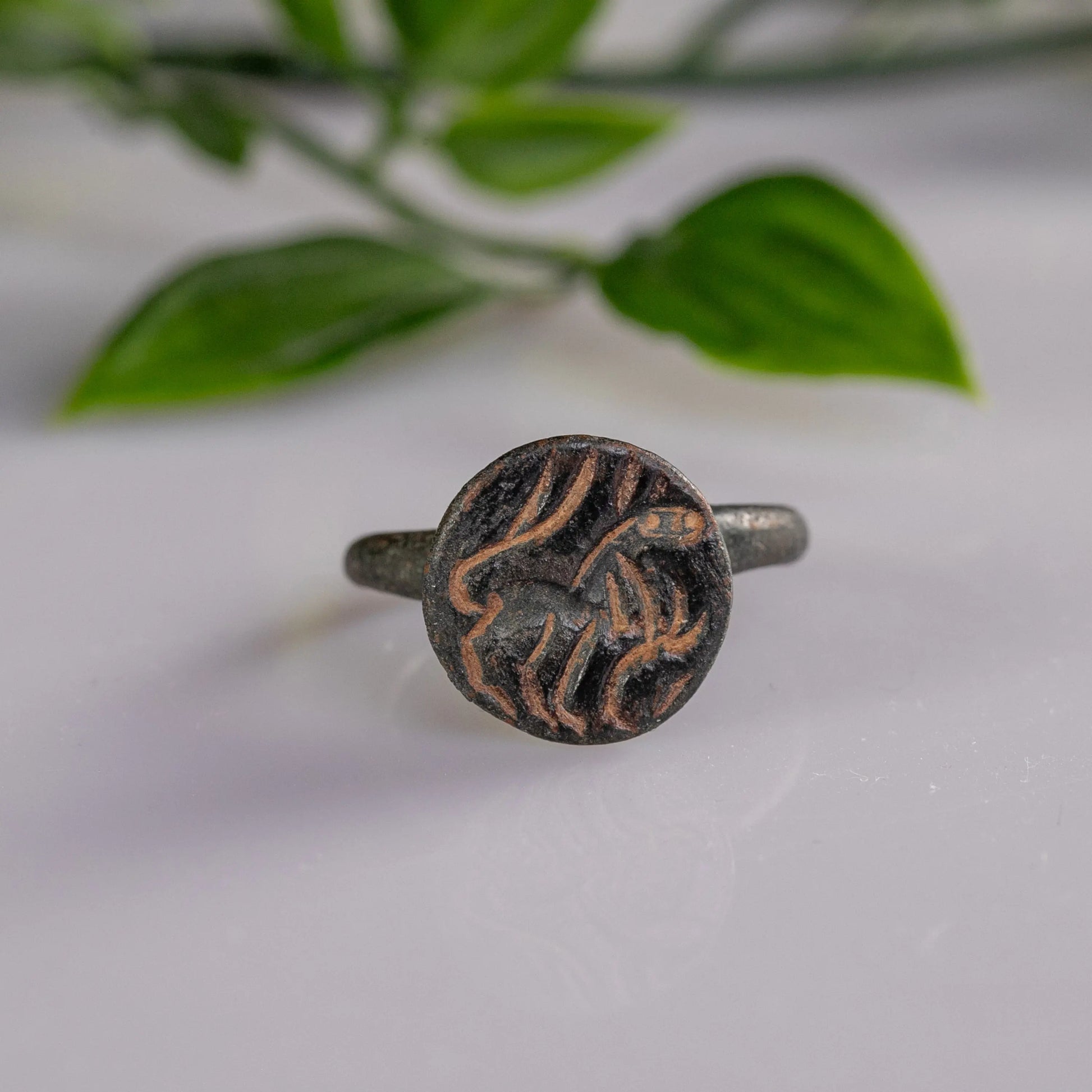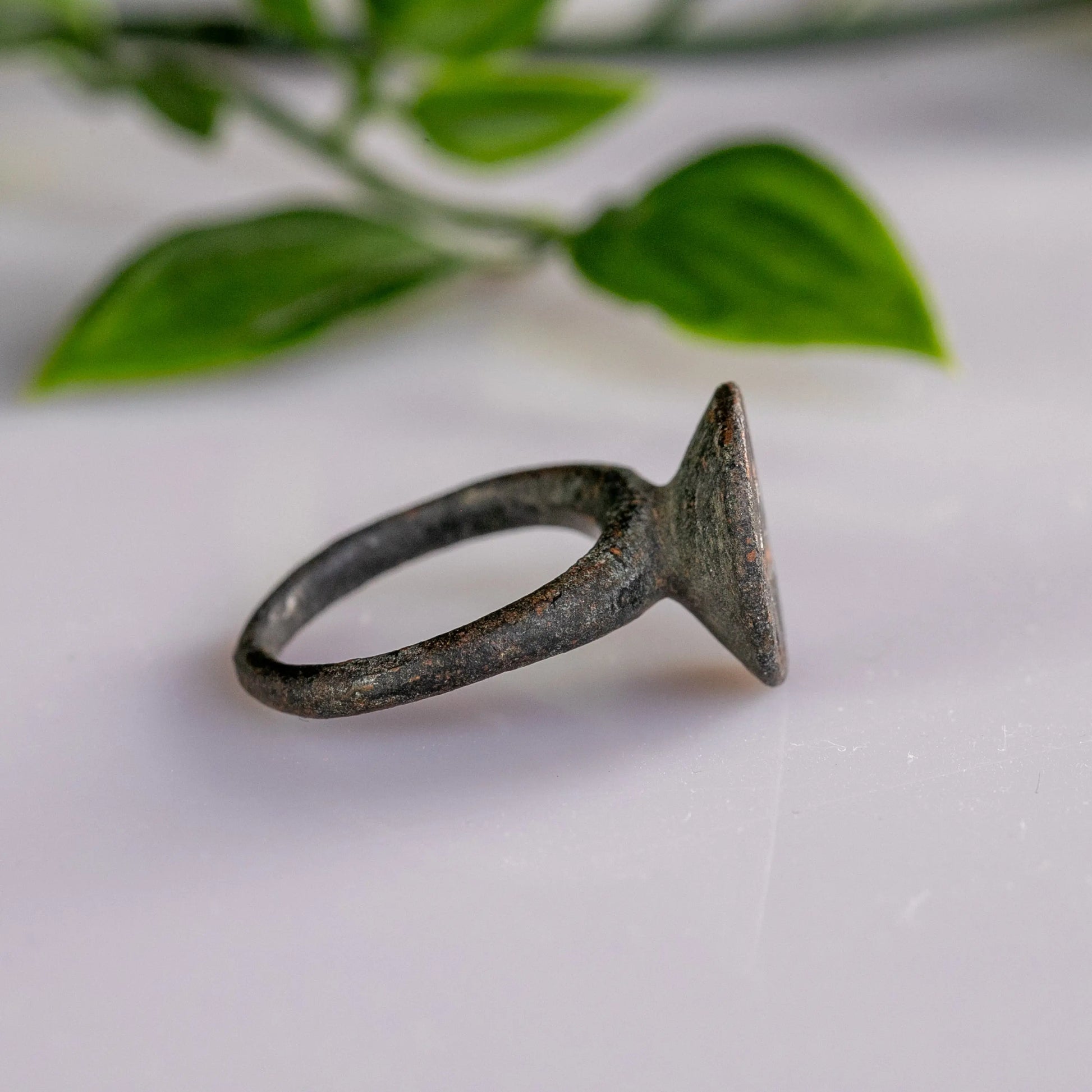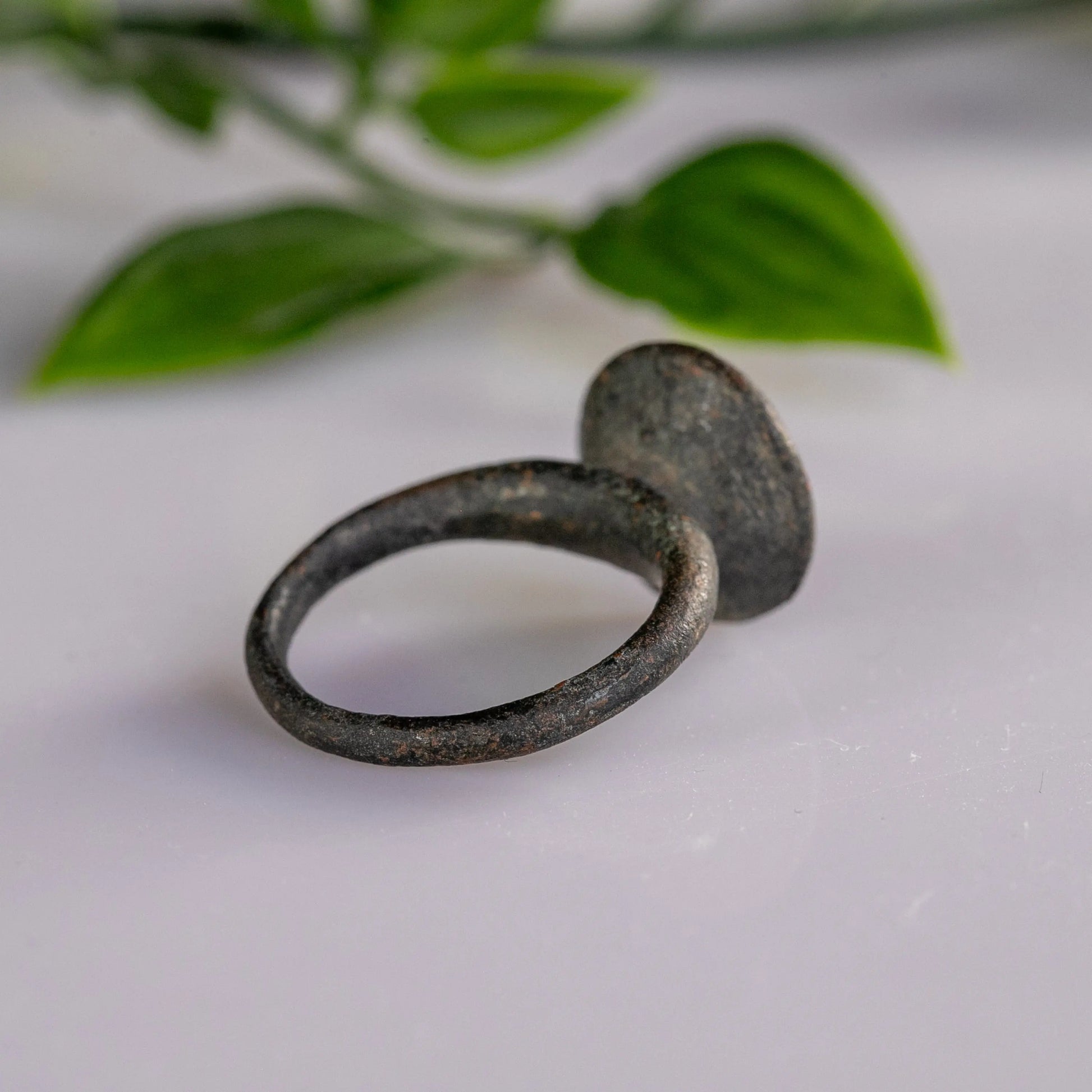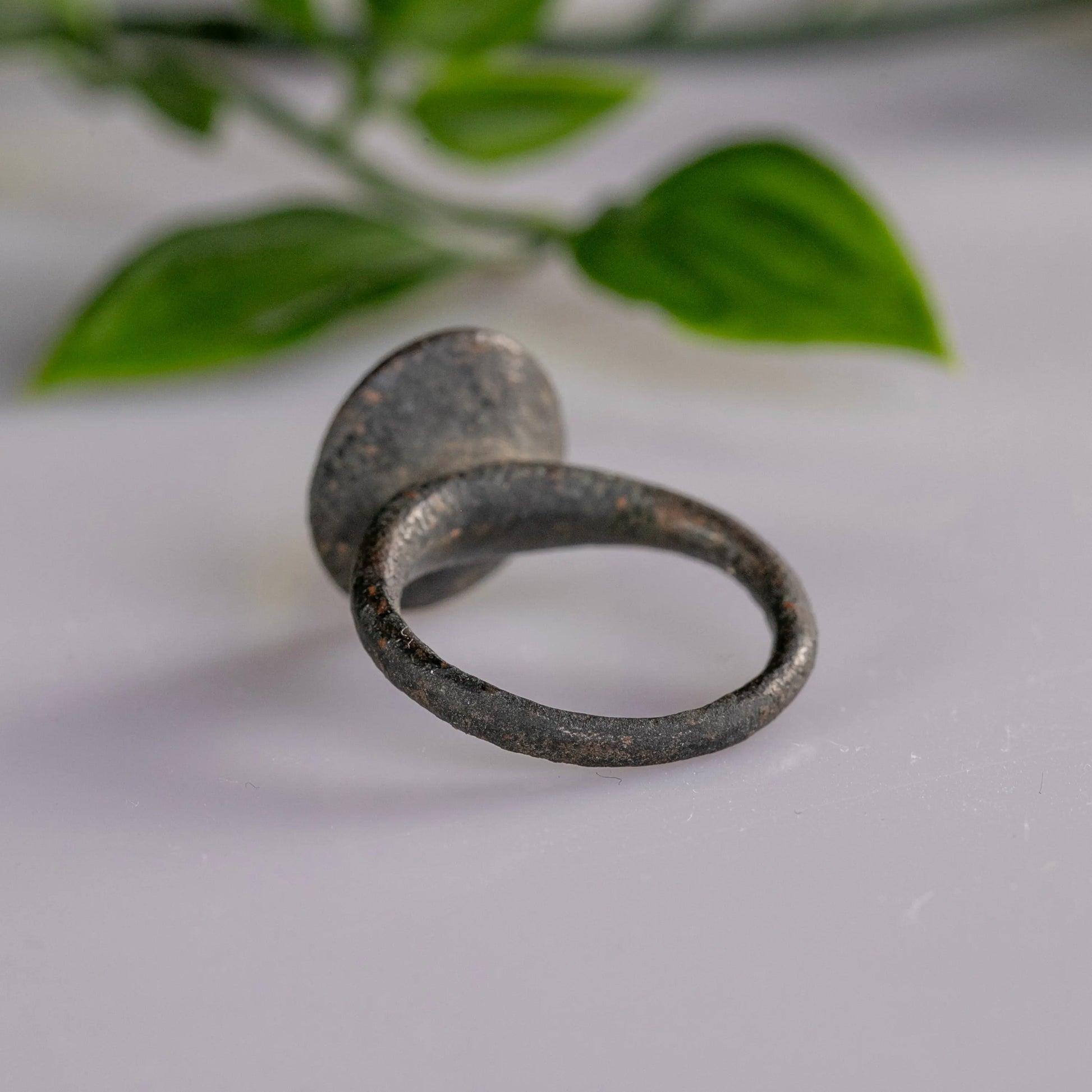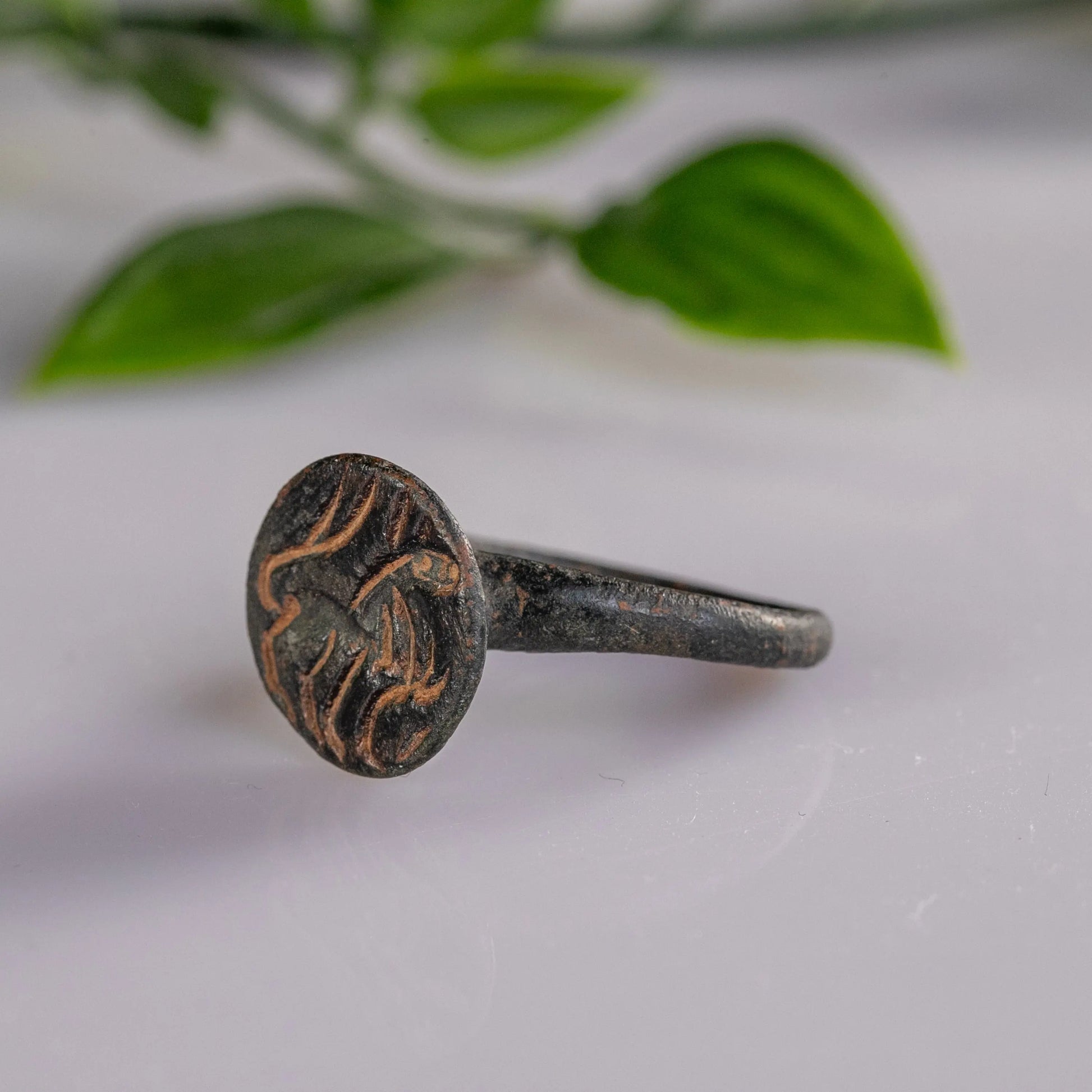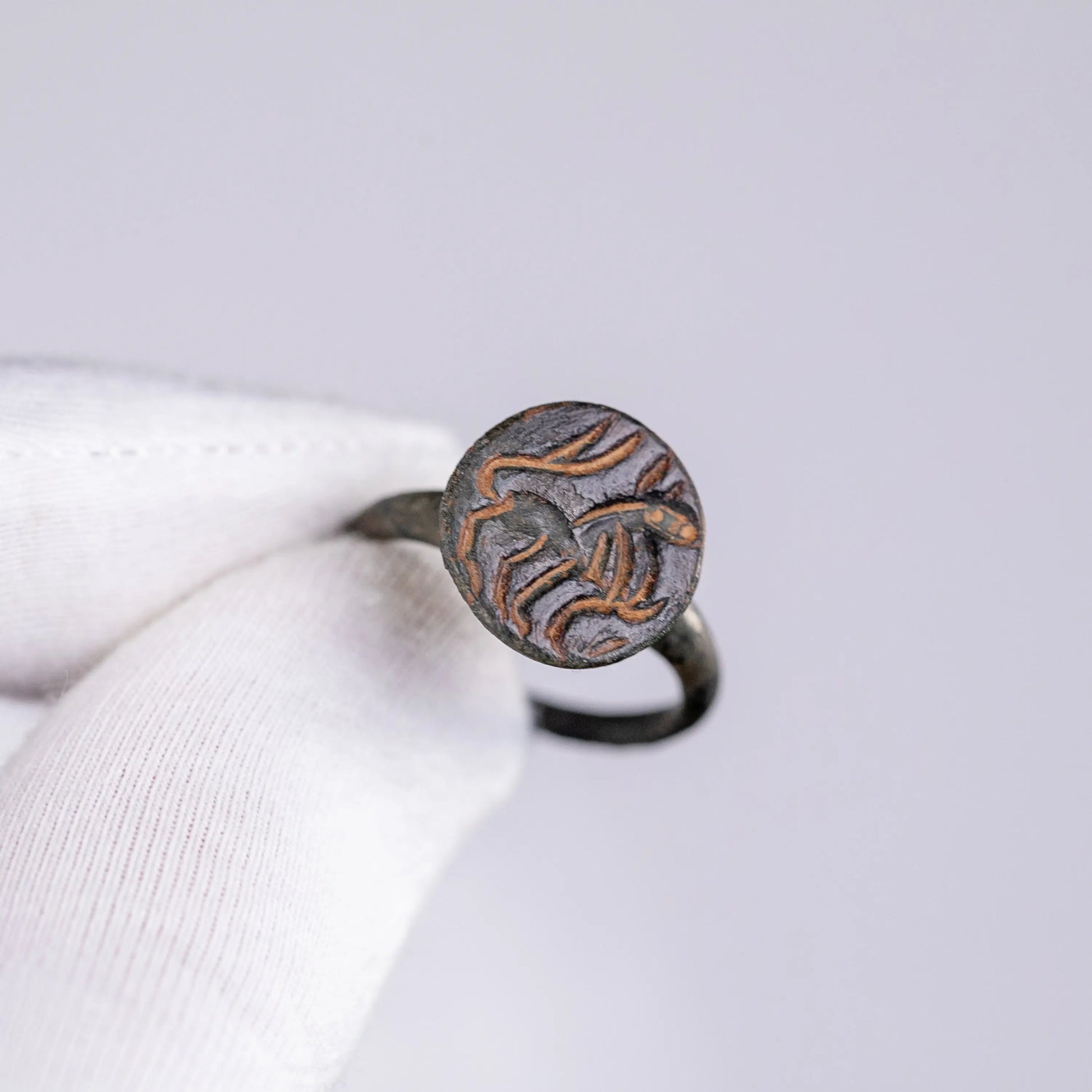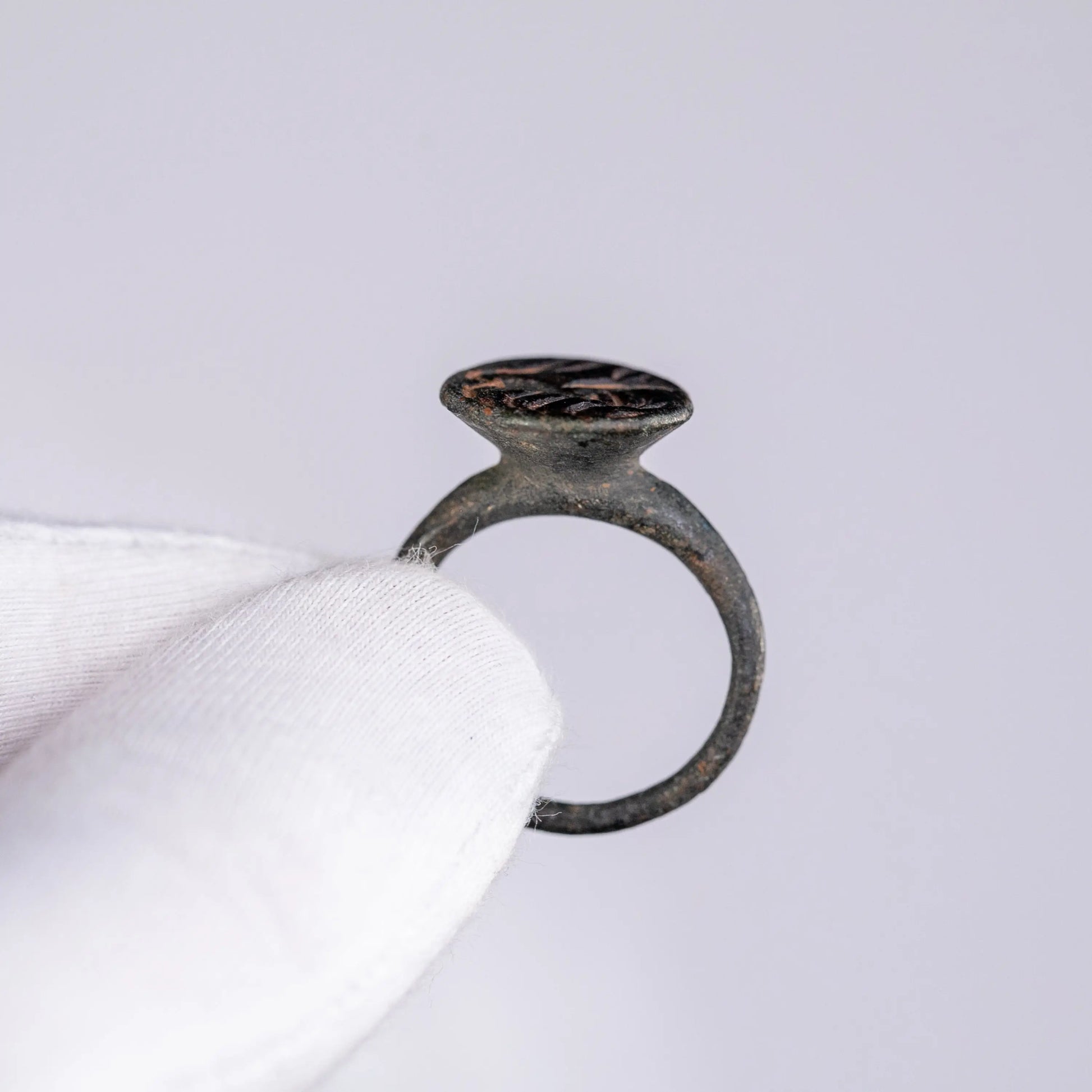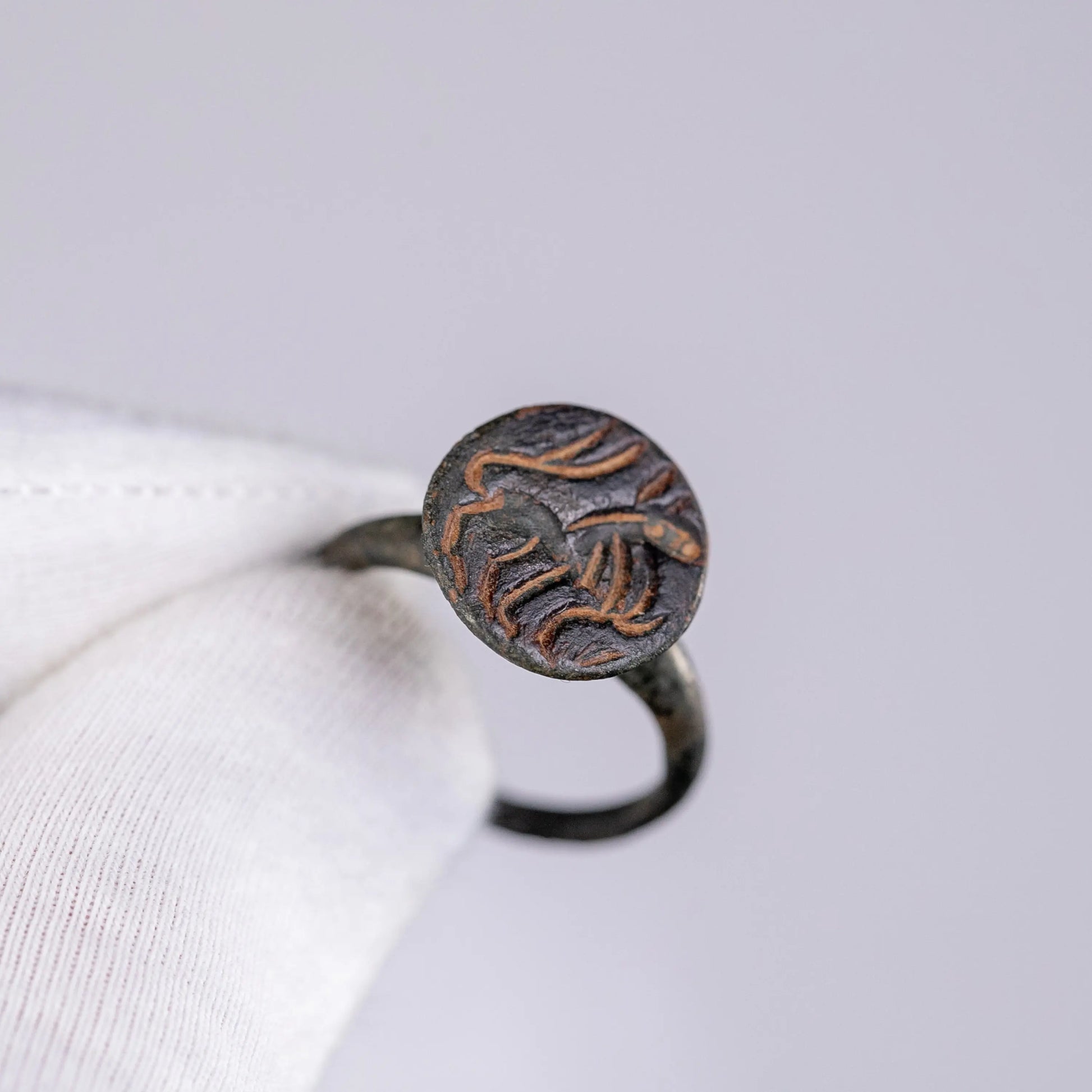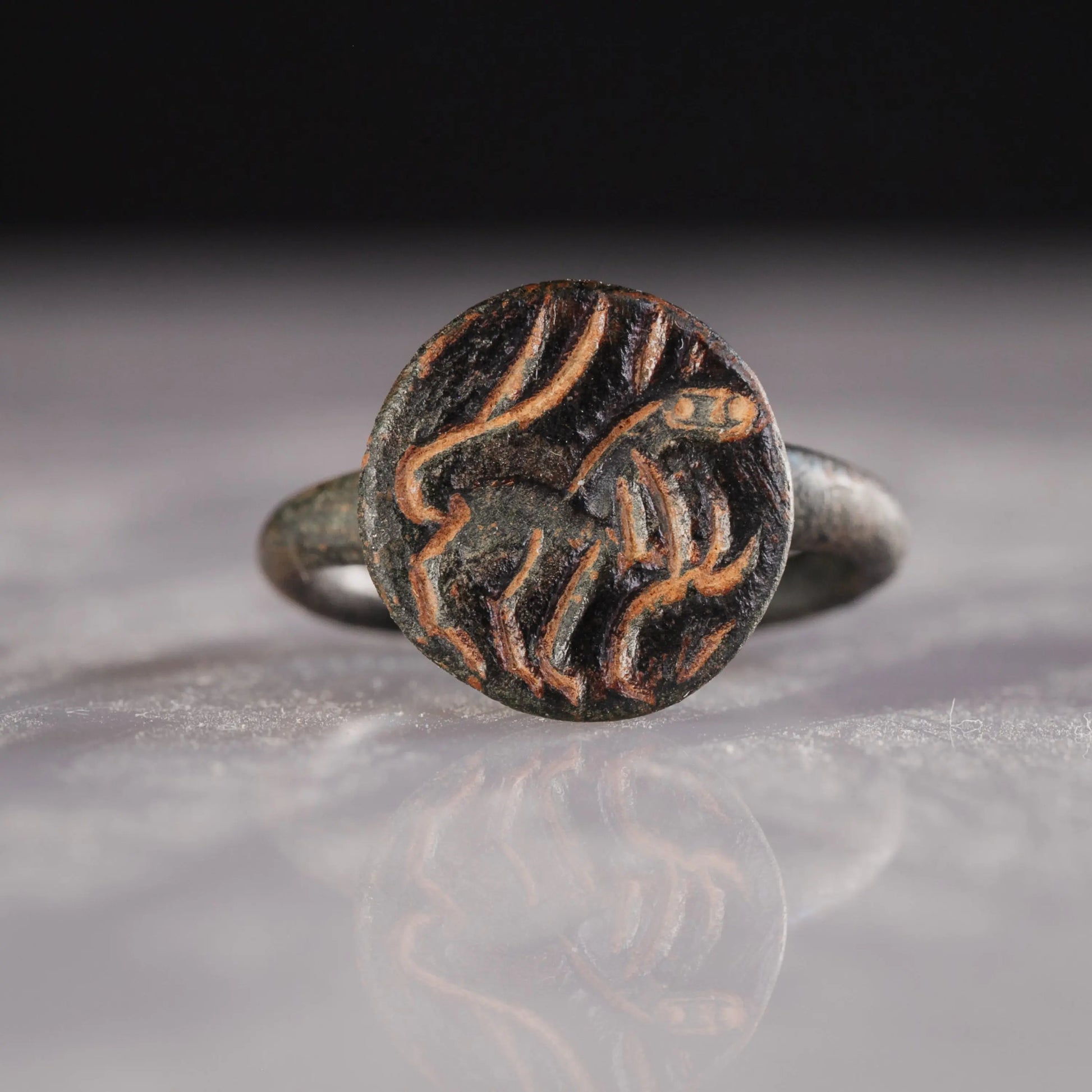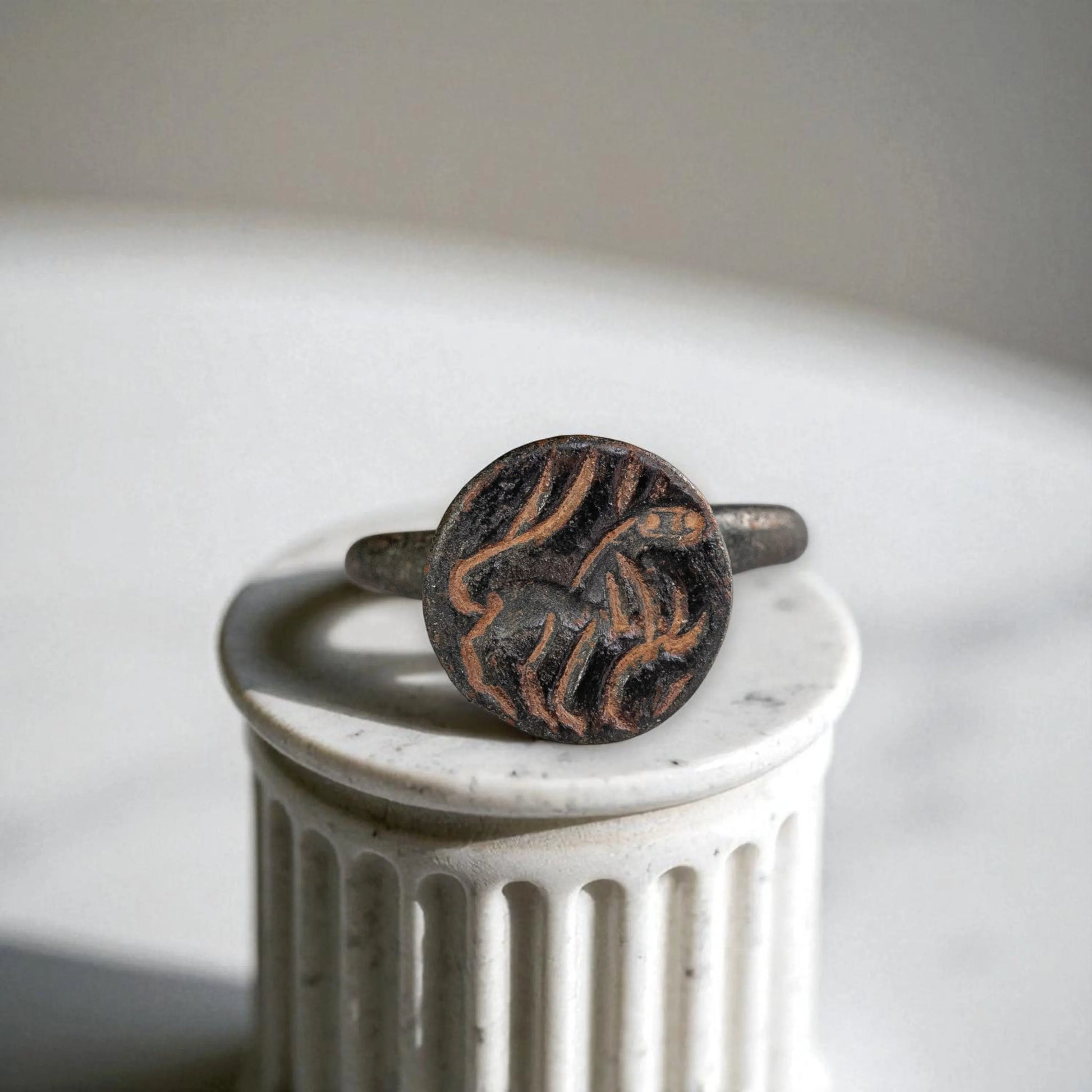
“Leo Fortis” – Roman Bronze Ring with Lion Intaglio (1st–3rd Century AD) – EU 57 / US 8
Material:
Era:
- Roman Empire
Rarity:
Description
This authentic Roman bronze ring, named “Leo Fortis,” dates to the 1st–3rd century AD. It features a boldly engraved intaglio of a lion on its round bezel—a classic symbol of strength, courage, and protection in Roman culture. Such rings were worn as both personal adornments and practical seals, reflecting the owner’s identity and aspirations.
Material: Bronze with original patina
Date: Roman Imperial, 1st–3rd century AD
Ring Size: EU 57 / US 8
Condition: Well-preserved, clear intaglio and stable patina
Provenance: From a private Belgian private collection, acquired in the 1960s.
Unique Identifier: R-R-61-B
Restoration and Authenticity:
This ring remains in untouched, excavated condition, bearing a natural patina from centuries of burial. Professional restoration is available on request to reveal more of its original detail while honoring its ancient surface. Certificate of Authenticity included.
Historical Context:
Lion motifs were popular across the Roman Empire, valued as talismans for their associations with power and guardianship. Signet rings like this not only served as personal jewelry, but also marked documents and goods with a unique seal, underscoring the status and character of their wearer.
Care
To maintain the beauty and integrity of your purchase, we recommend treating it with care. Simple maintenance practices, such as gentle washing and proper storage, can effectively preserve the longevity of your favorites. We encourage you to refer to the care instructions included with each item, designed to help you keep your purchase in top condition.
Authenticity
Our dedication to excellence extends beyond materials; it encompasses the artistry and craftsmanship illustrated in every piece we create.
What size is this ring?
This ring has the following two sizes, the larger number is the EU size and the smalle number is the US size:
You can find information about ring sizes and how to determine your own, here.
